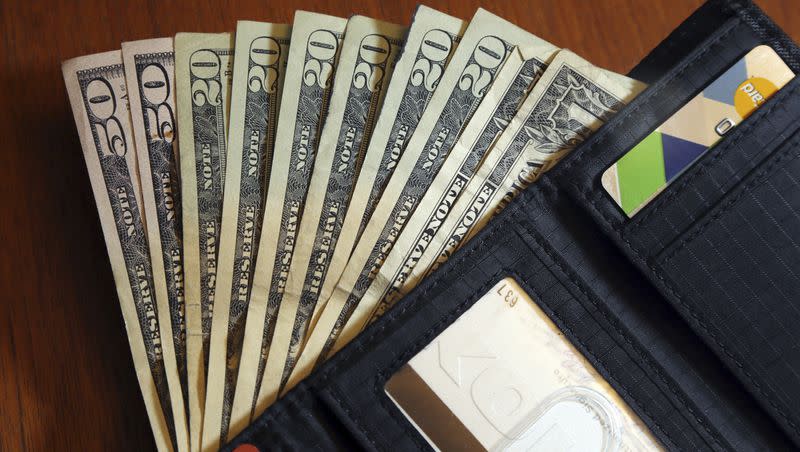Opinion: Would you pass the lost-wallet test?

Rick Saulnier of Groveland, Massachusetts, was out last month walking his new dog — always a test of will, pushes and pulls — when the dog led him down a side road. That’s when Saulnier spotted a pile of cash on the side of the road.
“I thought it was Monopoly money,” he told Boston’s WBZ-TV News. But it was quite real — about $12,000 worth.
Saulnier didn’t hesitate. He dropped off Buddy, the dog, and took the find to the local police office. “It made their day, they said, because a lot of people might not have done that,” he said. “I don’t know. I’m hoping that this shows people that’s what you’re supposed to do.”
A few weeks earlier, in Elkhart, Indiana, Josiah Vargas ordered a sausage McMuffin in a McDonald’s drive-through and got an unexpected side order of $5,000 stuffed in his bag. It was the restaurant’s bank deposit.
Vargas did what a lot of young people would have done. He pulled out his phone and made a TikTok video. “Why would you do this to me?” he said in the video, holding up a plastic bag full of cash. “Do you know how bad I want this money?”
Related
Not bad enough to compromise his honesty, apparently. The video shows him returning to the McDonald’s and handing back the cash. An employee can be heard saying, “This is a blessing from God. I really want to give you a hug.” Later, he reports being rewarded $200 and free McDonald’s meals for a month.
Also this year, in White Lake Township, Michigan, 65-year-old Dianne Gordon, a grandmother who had to walk to work through winter conditions because she couldn’t afford a car, found almost $15,000 on the ground near a BP gas station. According to several news outlets, there were wedding cards mixed with the cash, which obviously belonged to a newlywed couple.
“I was always taught if it doesn’t belong to you, you don’t keep it,” she told WXYZ in Detroit.
Police tracked down the couple who had lost the money. Then the wife of a police officer started a GoFundMe page that quickly raised enough money to buy Gordon a new Jeep so she no longer has to walk to work and back.
Every now and then, I like to Google search terms related to honesty, just to see if Americans have still got it. So far, I’ve never been disappointed. There always seem to be plenty of recent examples.
A cynic would counter that I’m presenting a distorted view. I’m cherry picking the examples of honesty that make the news. The folks who find money and keep it lurk in the shadows, where no one learns what they have done. Perhaps they make up the majority. For example, less than a year ago, headlines were blaring that Americans collectively stole $100 billion in federal stimulus money through various underhanded ways.
Related
As The New York Times reported it, the government gave money to people in prison, to people specifically labeled on government roles as on a “do not pay list,” to people who called their front yards “farms,” and to people both imaginary and dead.
Yes, all true. But don’t take that out of context, either. When Uncle Sam is giving away money without a lot of oversight, a small minority can get away with a lot.
I prefer to remember the results of the lost wallet experiment behavioral researchers conducted worldwide a few years ago. They littered the world with 17,000 “lost” wallets, filled with various amounts of cash or a key, and business cards. The researchers, pretending to be tourists, would turn them in to workers in public places — banks, hotels, the post office, etc. — then wait to see what happened.
The researchers polled economists who guessed that the more money the wallets contained, the less likely it was they would be reported. They were exactly wrong. Majorities returned the wallets containing money in 38 of the 40 countries tested.
They used larger wads of money in the United States and found the same results. The more money, the more the wallets were reported. The breakdown: 46% of wallets with no money were reported, compared with 61% containing about $13 and 72% containing nearly $100.
Researchers speculated this has something to do with how people see themselves, and for most people that is not as a thief.
That’s encouraging. It’s also a reason — in a world awash in news about dishonesty, incivility and crime — to believe that Rick Saulnier, Josiah Vargas and Dianne Gordon are not freaks or unicorns, but more like the people you meet each day.

